- Home
- Sarah Woodbury
Masters of Time
Masters of Time Read online
A novel from the After Cilmeri series
Masters of Time
by
Sarah Woodbury
Copyright © 2016 by Sarah Woodbury
Cover image by Christine D. Rice at Flip City Books
Masters of Time
June 1293.
David, King of England.
Philip, King of France.
A holy war neither man wants to fight.
A militant pope. A treacherous baron. A jealous brother.
Love. Honor. Family. Betrayal. Destiny.
Time Travel.
Masters of Time is the tenth novel in the After Cilmeri series.
www.sarahwoodbury.com
To Gareth
In thanks for the loan
of his car
Books in the After Cilmeri Series:
Daughter of Time (prequel)
Footsteps in Time (Book One)
Winds of Time
Prince of Time (Book Two)
Crossroads in Time (Book Three)
Children of Time (Book Four)
Exiles in Time
Castaways in Time
Ashes of Time
Warden of Time
Guardians of Time
Masters of Time
Outpost in Time
The Gareth and Gwen Medieval Mysteries:
The Bard’s Daughter (prequel)
The Good Knight
The Uninvited Guest
The Fourth Horseman
The Fallen Princess
The Unlikely Spy
The Lost Brother
The Renegade Merchant
The Unexpected Ally
The Last Pendragon Saga:
The Last Pendragon
The Pendragon’s Blade
Song of the Pendragon
The Pendragon’s Quest
The Pendragon’s Champions
Rise of the Pendragon
The Pendragon’s Challenge
The Lion of Wales series:
Cold My Heart
The Oaken Door
Of Men and Dragons
A Long Cloud
Frost Against the Hilt
The Paradisi Chronicles:
Erase Me Not
www.sarahwoodbury.com
Cast of Characters
David (Dafydd)—Time-traveler, King of England
Lili—Queen of England, David’s wife, Ieuan’s sister
Llywelyn—David’s father, King of Wales
Meg—Time-traveler, David’s mother
Anna— Time-traveler, David’s sister
Math—Anna’s husband, Lord of Dinas Bran
Callum—Time-traveler, Earl of Shrewsbury
Cassie—Time-traveler, Callum’s wife
Ieuan—Welsh knight, one of David’s men
Bronwen—Time-traveler, married to Ieuan
Arthur—son of David and Lili (born June 1289)
Alexander—son of David and Lili (born December 1292)
Gwenllian—daughter of Llywelyn (born June 1282)
Cadell—son of Math and Anna (born July 1285)
Geoffrey de Geneville—Norman/English lord
Justin—David’s captain
Samuel—Sheriff of Shrewsbury
Rachel Wolff—Time-traveler, physician
Abraham Wolff—Time-traveler, physician
Darren Jeffries—Time-traveler, MI-5 agent
Mark Jones—Time traveler, MI-5 agent
Bridget Donaldson—Time traveler, Peter’s wife
Peter Cobb—Time traveler, Bridget’s husband
Elisa Shepherd – Meg’s sister
Ted Shepherd – Meg’s brother-in-law
Elen Shepherd – Meg’s niece
Christopher Shepherd – Meg’s nephew
Chapter One
Aquitaine
Near Midnight
12 June 1293
David
“Couldn’t sleep?” David straightened and turned to look at the French king, who’d just appeared on the top step of the stairs leading to the battlement. When David had been up here earlier in the day, he’d watched the river run past the walls and found it soothing and mesmerizing. A bridge spanned the river slightly upstream from his position, and if any of David’s twenty-first century companions had traveled to Aquitaine with him, he might have proposed a game of Poohsticks. He’d also taken a look at the castle accounts, which documented the money spent shoring up the wall.
“I was hoping the open air would provide a better atmosphere for thinking than my chamber.” Philip rested a hand on a nearby merlon and peered through the crenel into the darkness of the river below them. The crenels at Chateau Niort were lower than normal, well below waist height, and could be uncomfortable to get too close to. “It seems you thought the same.”
They were speaking in French—in Philip’s case with an austere aristocratic accent. David was fluent in the language, but even he could hear the lilt of Welsh in his voice, a holdover from his first teachers. David was dressed like a Welshman too, in simple shirt and tunic, belted at the waist, breeches, and boots, albeit all of fine quality. Philip, on the other hand, was dressed like a European aristocrat in a light green linen shirt, a gold-embroidered deep green kirtle to match, those tight-fitting stocking-like pants the French liked to wear, these in brown, and matching brown knee-high boots. It was a warm night so he, like David, had left off his cloak.
Neither man was wearing his sword or customary knives either. Gilbert de Clare, one of David’s foremost advisers and the man who’d done most of the work to arrange this meeting, had suggested that both men go weaponless this week as a gesture of good will. It was purely symbolic. Although David had climbed to the battlement alone, he’d left a fully armed Justin at the foot of the stairs. A half-dozen more of his men lounged around the bailey below him, keeping him safe while the rest of his guard slept.
David cleared his throat, searching for something to say to continue the conversation. Since he was technically host—Chateau Niort was David’s through his title as the Duke of Aquitaine—it was his duty more than Philip’s. “I hope your accommodations are to your liking?”
“I have no complaints.” Philip frowned. “I was sorry to hear that Lord Clare has not yet arrived. Throughout our negotiations, he has been a voice of reason, and I was pleased to learn that he would be accompanying you here. I hope the delay isn’t due to something untoward?”
“Not that I know of.” David had also been surprised at Clare’s absence. He’d expected to see Clare on the dock at Bordeaux, where the royal party had disembarked. Although Clare’s wife had died in childbirth in January, he retained her lands in Aquitaine, as was his right. These lands were not so far from either Bordeaux or Chateau Niort that he couldn’t have ridden the distance in a few days. “I do not know what has prevented his immediate presence, but Clare’s men are here, and they assure me that the man himself should arrive tomorrow.”
“That is good. Otherwise we’d be forced to speak without a mediator.” Philip spoke in a tone so completely flat that it took David a moment to realize that he’d made a joke.
David laughed. “It is good to finally meet you, Philip. It is my hope that we can put aside our recent differences and come to an understanding over the next few days.”
Although David had been proclaimed Duke of Aquitaine last autumn in the wake of the bombing of Canterbury and the Battle of Hythe, relations between him and Philip hadn’t exactly been cordial. David’s advisers had feared that Philip might refuse to talk with him as one king to another, preferring to deal with him as the Duke of Aquitaine and thus a vassal to the French throne. That had been one of the many stumbling blocks in the negotiations between them.
Then at Easter, the po
pe had issued a call for a new crusade. More importantly, Pope Boniface expected David and Philip to crusade together, and it was the frank admission that neither of them wanted to go at all that had ultimately broken the ice and brought them together. While their respective courts had told the world that they were meeting to discuss a possible expedition to the Holy Land, the real point was to put their heads together to find a way to present a united front—and a plan—to the pope. They had to explain—without appearing sacrilegious or irreverent—why they weren’t going.
“Such is my hope too,” Philip said. “Thank you for traveling so far to meet me. I understand this is your first time on the Continent.”
“Yes—”
David’s reply was cut off by the sudden extinguishing of all the torches in the bailey, excepting the ones near his head on the wall-walk. Since torches burned in all weathers and conditions—water wouldn’t douse them—they wouldn’t have all gone out at once unless someone put them out.
Then the unmistakable sound of clashing swords resounded from below, in the midst of which Justin called, “Jump, sire! Jump now! We are betrayed!”
“Justin!” David moved past Philip towards the stairs, intending to come to his captain’s aid, but before he could take more than a few steps, Philip gave a suppressed cry. David spun back and cursed to see the French king clutching at the arrow shaft sprouting from his left shoulder. A red bloom of blood stained his elaborately embroidered shirt and kirtle. Then a second arrow whooshed past David, ruffling his hair and clattering on the stones behind him, having missed killing him by millimeters. David’s sudden movement back towards Philip had saved his life.
David had been Prince of Wales longer than he’d been King of England, and his own wife was an excellent shot, so David knew full well how long it took to aim and loose an arrow: well-trained archers could shoot one every few seconds. But even five arrows a minute was too many. From this distance, missing even once was a statistical improbability. Unfortunately, throwing himself onto the stones at his feet would do David little good because there was no railing around the inside of the wall-walk. Both he and Philip were completely exposed to the archer firing from the wall-walk on the other side of the bailey.
Lili had made David swear never to take off his MI-5 provided Kevlar vest except if offered the opportunity of a bath—and then only if the door was locked and he was alone. She had demanded this of him because she hadn’t trusted the King of France. But it wasn’t the King of France who’d arranged this meeting, who’d garrisoned the castle, and who wasn’t here tonight.
It was Clare. And David didn’t need Justin’s shouted warning to know it.
The decision to step in front of Philip and take the next arrow—or two as it turned out, fired in quick succession, Legolas-style—was one that David made without thought as the only logical next step. Though Kevlar couldn’t stop an arrow all by itself, the interior ceramic plate, which protected his chest, would.
And did.
The first arrow struck David with breathtaking force and drove him backwards into Philip. The second one had him flailing his arms and lolling his head in hopes that these dramatized death throes would be enough to convince the assassin that if David and Philip weren’t dead yet they soon would be. Above all else, David needed the arrows to stop coming.
Then Philip showed he’d been doing some thinking of his own. Despite the wound in his shoulder, his arms came around David’s waist, and, with an athleticism that rivaled the best Olympic gymnast, he leaned back into the crenel behind him, flipped up his legs, which forced David’s upwards as well, and rolled backwards with David through the gap. The two men turned a complete somersault, ultimately falling feet first towards the river that flowed below them.
As they fell, David kept a tight hold on Philip’s arms so that when he traveled, Philip would come with him. But to David’s surprise and dismay, no black abyss appeared to save him from the dangers above and below. Avalon failed entirely to appear. There was only the same watery blackness of the river, flowing relentlessly and unchanged to the sea.
Chapter Two
Westminster Castle, London
Near Midnight
12 June 1293
Lili
Lili sat up with a start, her heart pounding in her ears. She’d felt those arrows hit her chest, and her pulse had thudded along with Dafydd’s as he’d fallen from the battlement. She could almost believe that she’d been miraculously transported to Aquitaine for a short while, instead of sleeping here in their big, canopied bed, empty but for Alexander beside her. The baby lay completely relaxed, as babies do, on his back with arms and legs spread wide. At nearly six months old, Alexander had long since rejected the restrictions of infant wrappings. He slept under any blanket at all only because she would wake every so often to cover him.
She slipped off the bed and went to the window, built into the curtain wall of the King’s Tower. Similar to Chateau Niort, Westminster Castle perched on the bank of a river, though in this case, it was the Thames. From her window, once she opened the shutter, she could see straight down into the water flowing sluggishly past, heading towards the English Channel a hundred miles away.
Leaving the shutters open, since it was a warm night and she liked the fresh air, she turned back to Alexander, who rolled over and whimpered. He stayed asleep, however, so she looked back to the water, thinking of Dafydd falling into it. He was strong and could swim, so she didn’t fear him drowning, but she would never forget the feel of those two arrows hitting his chest.
The only light in the room came from the moon, which would be full in another week and shone brightly down, leaving a square of light on the floor. As her heart finally slowed its pounding, she was able to think more calmly about what she’d experienced and witnessed. Why Dafydd hadn’t traveled to Avalon she didn’t know any more than he did, but she felt certain that he lived under the same moon she did. The thought was comforting to her, rather than dismaying as it had been to Dafydd.
It wasn’t quite midnight yet. As was often the case, she’d fallen asleep while nursing Alexander to sleep. She could hear the wet nurse stirring in the next room, where she slept with her own son, Sion, who was near to Alexander in age. Most of the time Lili fed her baby herself, but as Queen of England, there were occasional times when she couldn’t be with him when he was hungry. Because Alexander was a prince of England, he also had his own nanny, though Lili had given her the night off.
“What is it, Lili?” Bridget, Lili’s twenty-firster friend, stepped through the doorway. While Dafydd was away, Bridget and her husband, Peter, had come to visit, taking a short holiday from their wool business and their spy work for Callum in Shrewsbury. Bridget carried a lighted candle and raised it higher. “I heard you cry out just now.”
Branwen, Lili’s maid, had died suddenly a month ago from an illness the twenty-firsters called cancer. It had spread throughout Branwen’s body, weakening her and opening the way for pneumonia to take hold. Not even the best efforts of the Llangollen physicians could help her once her lungs had filled with fluid. Branwen hadn’t confided to Lili that she felt ill until it was too late. Despite many interviews and much hard thinking, Lili hadn’t yet settled on anyone to replace her lost friend.
“I—” Lili closed her eyes, shaking her head slightly. “I had a dream of Dafydd.”
“Just a dream or—” Bridget paused a moment as she looked carefully at Lili, “—something more?”
“Yes. It was more than a dream.” Lili opened her eyes to meet Bridget’s green ones. They were full of concern. “I know Dafydd is far away in Aquitaine, and I know it sounds mad, but I saw him.”
“Is he okay?”
“He’s alive.”
Most of the other twenty-firsters would have dismissed out of hand the possibility that Lili might have the sight. Lili found it refreshing that Bridget was taking her seriously. In fact, Bridget was taking her more seriously than even Lili herself might have before she had
this dream. It had been so long since she’d experienced any kind of vision or premonition that she had wondered if she’d ever had the ability at all. Branwen had believed this lack to be a result of living in London for so long. There’s no room in the city for the spirit, she’d told Lili more than once.
Bridget moved farther into the room. “Do you want to tell me about it?”
So Lili told her everything she could remember. From the vision, she knew that Dafydd believed Gilbert de Clare to be the mastermind behind the assassination attempt, which was both terrifying to think about and made so much sense that Lili wondered how it was possible that they hadn’t suspected him of evildoing months—if not years—ago. She thought back to the time before Dafydd’s coronation when they’d spied on a meeting of Nicholas de Carew, Edmund Mortimer, and Gilbert de Clare in one of the chambers right here at Westminster Castle. She’d told Dafydd to leave them to their plots because he couldn’t possibly control his barons in everything, and at that time they were conspiring on his behalf.
She blamed herself for not recognizing the extent to which Gilbert de Clare lived and breathed intrigue. Clare was a proud nobleman, with a heritage that time and again had elevated him to a position just short of the throne. He’d stood at Dafydd’s side for the last five years. He’d watched other men challenge Dafydd and fail. What had made him decide that his time was now? The answer was beyond Lili.
Bridget looked gravely back at her. “Gilbert de Clare is dangerous.”
“I know. Perhaps it was an underlying fear of his power that kept us believing in his fealty all this time. We wanted to believe in it.”

 The Good Knight
The Good Knight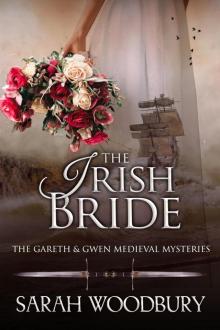 The Irish Bride
The Irish Bride Refuge in Time
Refuge in Time Masters of Time
Masters of Time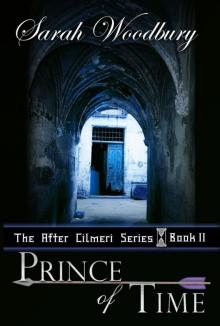 Prince of Time (Book Two in the After Cilmeri series)
Prince of Time (Book Two in the After Cilmeri series)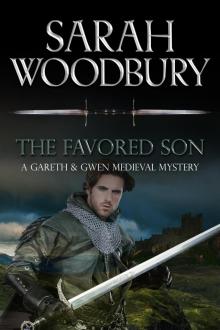 The Favored Son
The Favored Son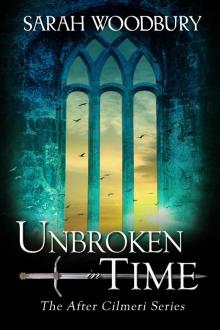 Unbroken in Time
Unbroken in Time![[The Lion of Wales 01.0] Cold My Heart Read online](http://i1.bookreadfree.com/i/03/22/the_lion_of_wales_01_0_cold_my_heart_preview.jpg) [The Lion of Wales 01.0] Cold My Heart
[The Lion of Wales 01.0] Cold My Heart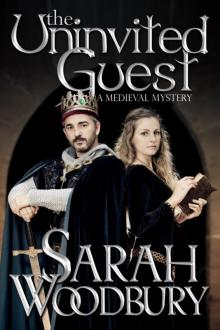 The Uninvited Guest
The Uninvited Guest The Pendragon's Blade (The Last Pendragon Saga Book 2)
The Pendragon's Blade (The Last Pendragon Saga Book 2)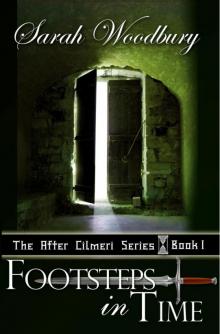 Footsteps in Time
Footsteps in Time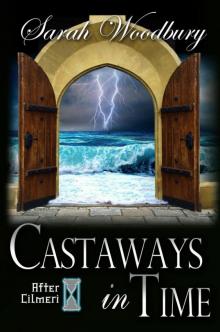 Castaways in Time (The After Cilmeri Series)
Castaways in Time (The After Cilmeri Series) Winds of Time
Winds of Time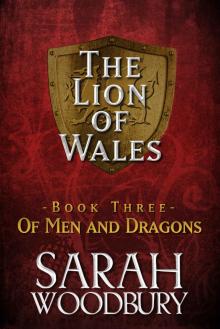 Of Men and Dragons (The Lion of Wales Book 3)
Of Men and Dragons (The Lion of Wales Book 3) Champions of Time
Champions of Time The Pendragon's Challenge (The Last Pendragon Saga Book 7)
The Pendragon's Challenge (The Last Pendragon Saga Book 7) Rise of the Pendragon (The Last Pendragon Saga Book 6)
Rise of the Pendragon (The Last Pendragon Saga Book 6) The Worthy Soldier
The Worthy Soldier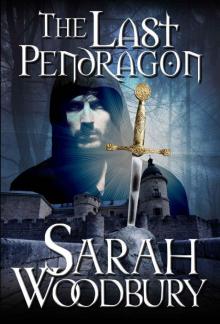 The Last Pendragon (The Last Pendragon Saga Book 1)
The Last Pendragon (The Last Pendragon Saga Book 1) The Fallen Princess
The Fallen Princess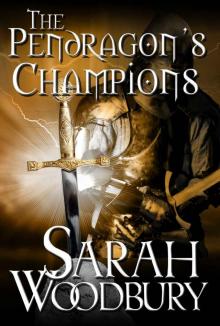 The Pendragon's Champions (The Last Pendragon Saga Book 5)
The Pendragon's Champions (The Last Pendragon Saga Book 5)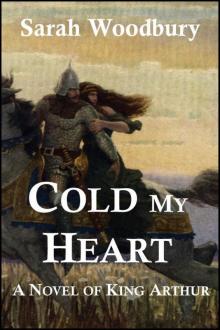 Cold My Heart: A Novel of King Arthur
Cold My Heart: A Novel of King Arthur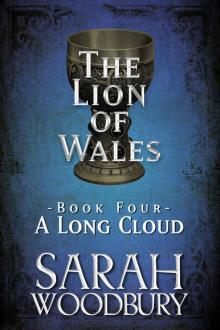 A Long Cloud (The Lion of Wales Book 4)
A Long Cloud (The Lion of Wales Book 4) Frost Against the Hilt (The Lion of Wales Book 5)
Frost Against the Hilt (The Lion of Wales Book 5) Daughter of Time: A Time Travel Romance
Daughter of Time: A Time Travel Romance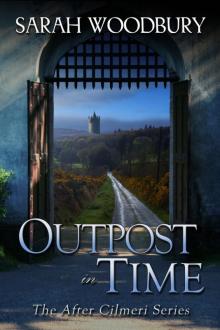 Outpost in Time
Outpost in Time Shades of Time kobo
Shades of Time kobo The Pendragon's Quest (The Last Pendragon Saga Book 4)
The Pendragon's Quest (The Last Pendragon Saga Book 4) The Unexpected Ally
The Unexpected Ally Crossroads in Time (The After Cilmeri Series)
Crossroads in Time (The After Cilmeri Series)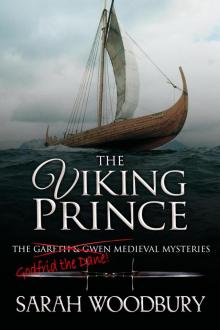 The Viking Prince
The Viking Prince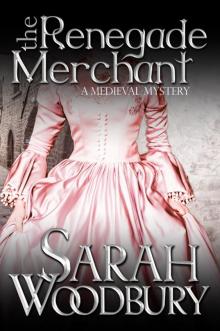 The Renegade Merchant
The Renegade Merchant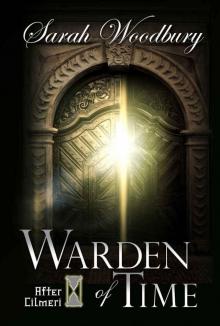 Warden of Time (The After Cilmeri Series Book 8)
Warden of Time (The After Cilmeri Series Book 8)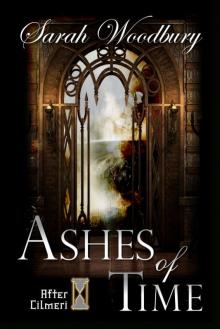 Ashes of Time (The After Cilmeri Series)
Ashes of Time (The After Cilmeri Series) Exiles in Time (The After Cilmeri Series)
Exiles in Time (The After Cilmeri Series) The Unlikely Spy
The Unlikely Spy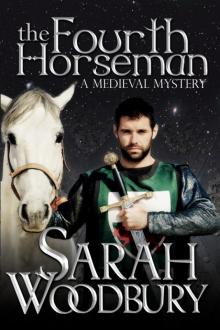 The Fourth Horseman
The Fourth Horseman The Oaken Door (The Lion of Wales Book 2)
The Oaken Door (The Lion of Wales Book 2) Song of the Pendragon (The Last Pendragon Saga Book 3)
Song of the Pendragon (The Last Pendragon Saga Book 3) Champions of Time (The After Cilmeri Series, #13)
Champions of Time (The After Cilmeri Series, #13) Guardians of Time
Guardians of Time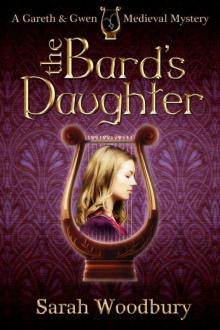 The Bard's Daughter (A Gareth and Gwen Medieval Mystery)
The Bard's Daughter (A Gareth and Gwen Medieval Mystery)